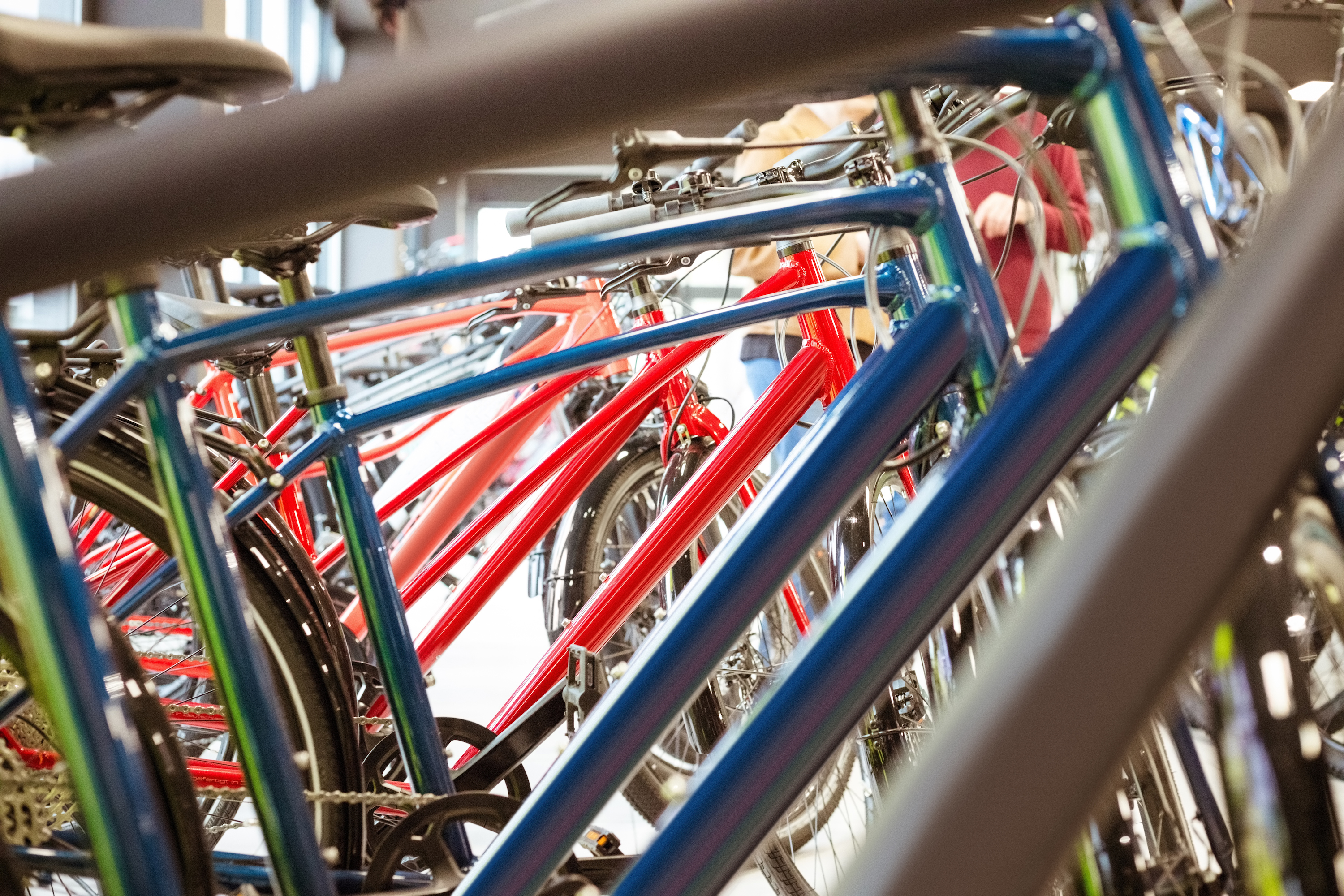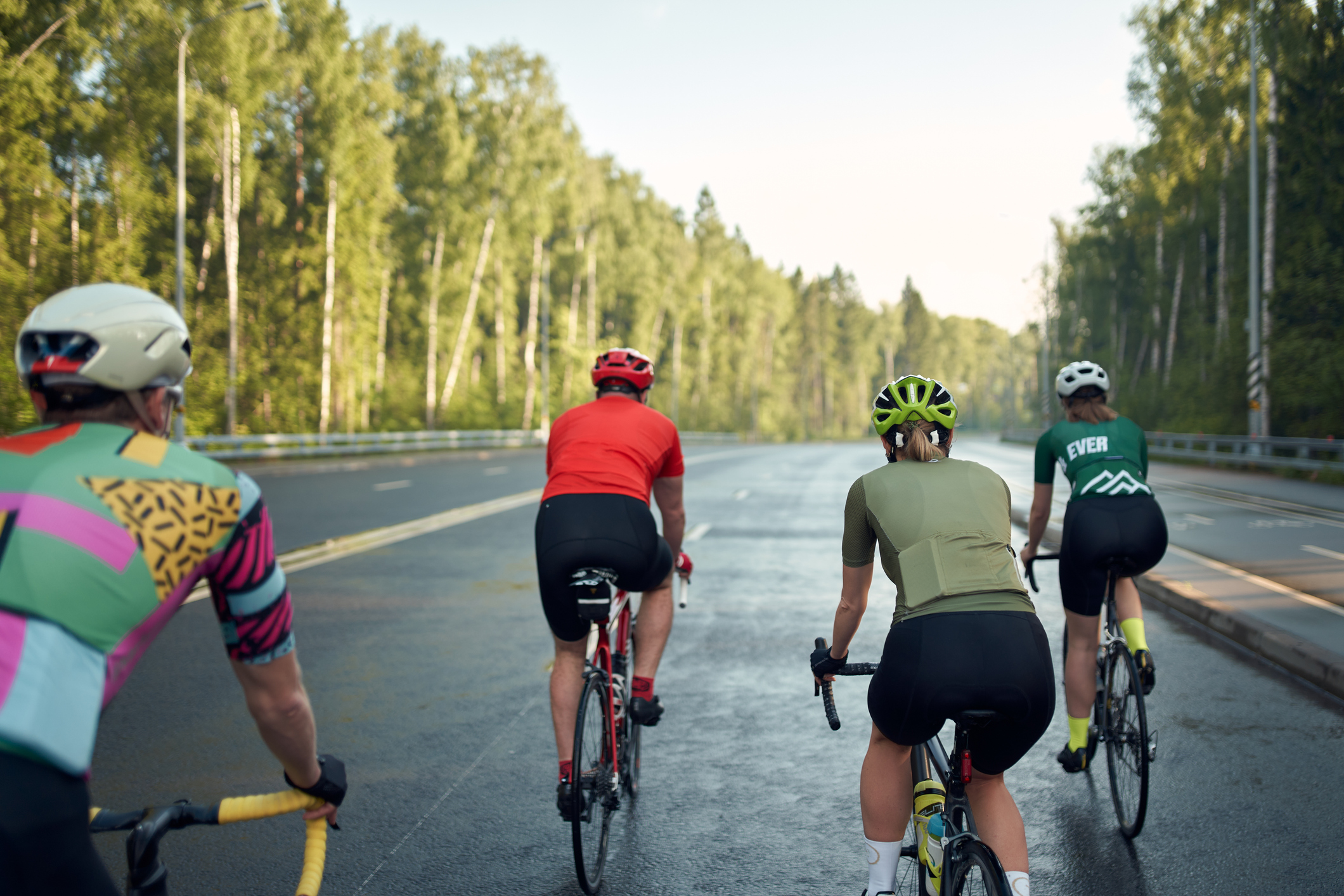
The Covid pandemic was only four years ago, but it feels almost unreal now. Like a half-forgotten dream – and not a good one either.
There was nothing make-believe about it though. We know that much in part because of the reverberations it sent through the cycling industry – a crashing wave of boom then bust that sent it reeling.
The individual aftershocks are still being felt – in the form of a series of suppliers going out of business, or entering administration in search of a buyer, or simply deciding it wasn't worth it any more and opting out.
Those gloomy industry tales are one of the few links we have left right now to cycling's lockdown halcyon days, when the roads were empty, time was at hand, and bikes were flying out of shops faster than they could be supplied.
Another link, of course, are the Covid bikes themselves. The very machines that were hungrily purchased to fill time and feed a newfound hobby – the same bikes that, in effect, drove the industry towards if not a precipice, at least a steep downhill slope.
Those bikes still exist. But where are they all?
As the stats show, many of the people who bought them don't appear to be using them any more, with cycling now at considerably lower levels that it was in 2020, both in the USA and the UK, but most markedly in the latter.

In the US, a study by People for Bikes found that 10% of adults engaged in cycling in a new way in 2020 – perhaps riding a bike for the first time in a long time, or even experimenting with a different discipline. Participation has declined since 2020 but is still above pre-lockdown levels.
In the UK cycling mileage almost doubled from 2019 to 2020 (3.6 billion miles to 5.3 billion), according to government figures. It remained high in 2021 at 4.2bn, but by 2023 had dipped back down 3.6bn. Back to where we started.
In terms of bikes purchased, Mintel research shows a 22% jump from 2019 to 2022 in the UK (2.7 million to 3.2 million). In the US, cycle sales jumped by 40% in the same period, according to Statista.
These trends were reflected in turn on preloved sales platforms. Figures shared with us by Gumtree show that replies to cycles listings increased by between 100-300% year on year during the spring and summer of 2020.
Certainly some of these lockdown bikes have been sold on, and according to those in the know, there is no end of people looking to sell used bicycles, in what is very much a buyer's market right now.
Matt Connelly of Cycle Exchange says that because so many people are looking to sell, he is having to tighten the window in which he accepts bikes coming in.
"The sweet spot where we sell, which is around £3-5,000 ($3,800-6,300) on a refurb bike – that is heavily supplied," he says. "The people who want to sell can sell, but you've just got to be prepared to maybe lose a bit more than you expected."
Theo Golditchuk, who co-founded Buycycle in 2021, tells a similar story.
"We see that supply is increasing heavily on our marketplace," he says. "We are growing overall, but the supply is really driving the growth."
Both men's view is that Covid bikes have undoubtedly made up a significant proportion of that heavy supply, but have mixed feelings on whether there is still more to come.
Connelly's feeling is that what was going to be moved on will already have been, while the remainder continues to collect dust, gradually becoming obsolete.
"My general impression is a lot of that stuff – the lower end stuff, I'd say sub-£1,000 ($1,260) purchase price, is just still sitting around and unsold, unused.
"I don't think all that stuff will ever sell," he adds. "If you're going to sell, it would have sold by now. It's starting to get outdated, a lot of that stuff bought in Covid."
Golditchuk also believes that a lot of Covid bikes remain unsold and unloved, but he feels the used market could benefit hugely from unlocking that potential – something he is determined to do.
"Based on our calculation – it's a rough number, because you never know exactly – but 80% of the potential is undiscovered in some basements," he says.
"That's the most important part," he adds. "Let's get that 80% potential [on to the market]. It's not about fighting against other platforms. It's about evolving the market. Because more listings means more sales means the second-hand market is developing in the right direction."
Cycle Exchange and Buycycle are two examples of used bike platforms that look to be thriving in what is not an easy market right now. Unlike retailers, for example, they are able to be agile, un-beholden to huge historic orders that leave them short on cash but weighed down by assets.
"We are basically switching people from new to used, because we're offering all the same benefits as buying a new bike," Connelly says. "So we're just replacing new sales. We're not part of a growing sector. If the sector starts growing again, then you've got a healthy relationship."
Golditchuk concurs: "The second-hand market is more robust [than new sales] at the moment. But overall, if the whole market is booming, I'm sure it would be also better for us – I'm looking forward to happening."
And he has a "bullish" confidence, he says, about the cycle industry going forward.
"Bikes are getting more relevant for commuting," he says, "and sport is getting more relevant because people are sitting 12 hours a day in front of a screen, and they want to change that on the weekends. So [the future] is something I'm not concerned about at all."
If you bought, or sold a Covid bike (or are riding one now that you bought used) let us know in the comments.







